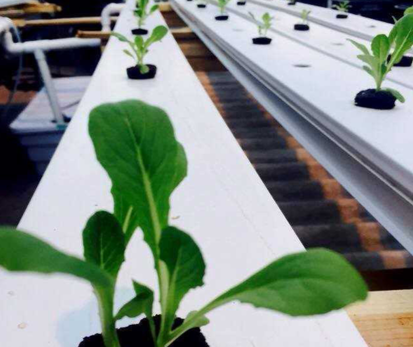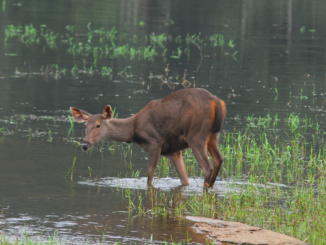
By: Kate Brein
Opinion Piece
How did Earth Day get its start? On April 22, 1970, Earth Day became an established holiday through the organizing and education efforts of Sen. Gaylord Nelson and Harvard student Dennis Hayes.
Earth Day is a day of worldwide education on environmental issues such as pollution, extinction and more recently climate change.
If you are concerned about the state of the environment but don’t do much to live out that concern, you match the 12 percent of 18-29 year-olds who do the same, according to the Pew Research Center.
However, today we are seeing the dangerous effects of this ambivalence. The effects of climate change have continued to damage the health of people around the globe.
More severe storms displace thousands of people. The death toll from these crises rise every year. Those living near factories live with polluted the air, water and soil.
They face shorter life spans and greater health problems.
People’s health and lives are directly related to the health of the planet.
Dominican has been become more aware of the future that is in store for the generations to come and has implemented ways to improve our ecological footprint.
From roof to waste, Dominican has increased its sustainability practices over the past 10 years. Many of the green initiatives are seen on campus every day.
We save energy in rooms with motion sensors, water re ll stations decrease bottled water and have permeable pavers that put water back into the ground rather than to sewers. There are even more efforts happening behind the scenes.
Dining Services composts as much as possible each day. The total for March was 1,049 pounds.
The kitchen staff uses a prediction system to order just the right amount of food in order to minimize leftovers.
We must celebrate Chef Greg Pittman and General Manager Ryan Babich who are excellent innovators when it comes to repurposing scraps. Over 75 percent of the veggies and meat excess are used to make veggie and beef stock. Fruit scraps are used to make infused drinks like the pineapple ginger tea.
Dining also prescribes to the Food Program, so when there is leftover food it is distributed to feed people in need. Just last fall 2018, 1,149 meals were donated.
Surplus Program, so when there is leftover food it is distributed to feed people in need. Just last fall 2018, 1,149 meals were donated.
As of February, 249 meals have been donated.
Dominican University has made gains in the course toward sustainable practices, but we are at risk of falling into stagnation.
Each vocation and profession can bene t from ecological education. Business and economics must understand the costs of dwindling resources. Politics and biology must know the impact of pollution on the health of humans of the world. Theology and literature can divulge meaning from our relationship with nature, preserving beauty and creating change.
Another way students can get involved is with SustainDU, the eco club on campus, for more info, contact SustainDU President Emily Sabo at emilsabo@my.dom.edu.
And not to leave you hanging, but here are ve things you can do this spring and summer to practice more sustainable living:
1. Carry a reusable bag to the grocery store for produce, and other goods
2. Try a low meat diet and or buy from local farmers markets to support local agriculture
3. Carry a BPA or glass bottle with you to hydrate and help the environment by reducing plastic waste
4. For your mental health go for a walk and or bike, scooter, or skate
instead of driving. Or take public transportation with friends to a new awesome summer fun spot.
5. Thrift shop or visits a consignment shops to find awesome affordable sustainable style you can’t find anywhere else!
briekath@my.dom.edu

